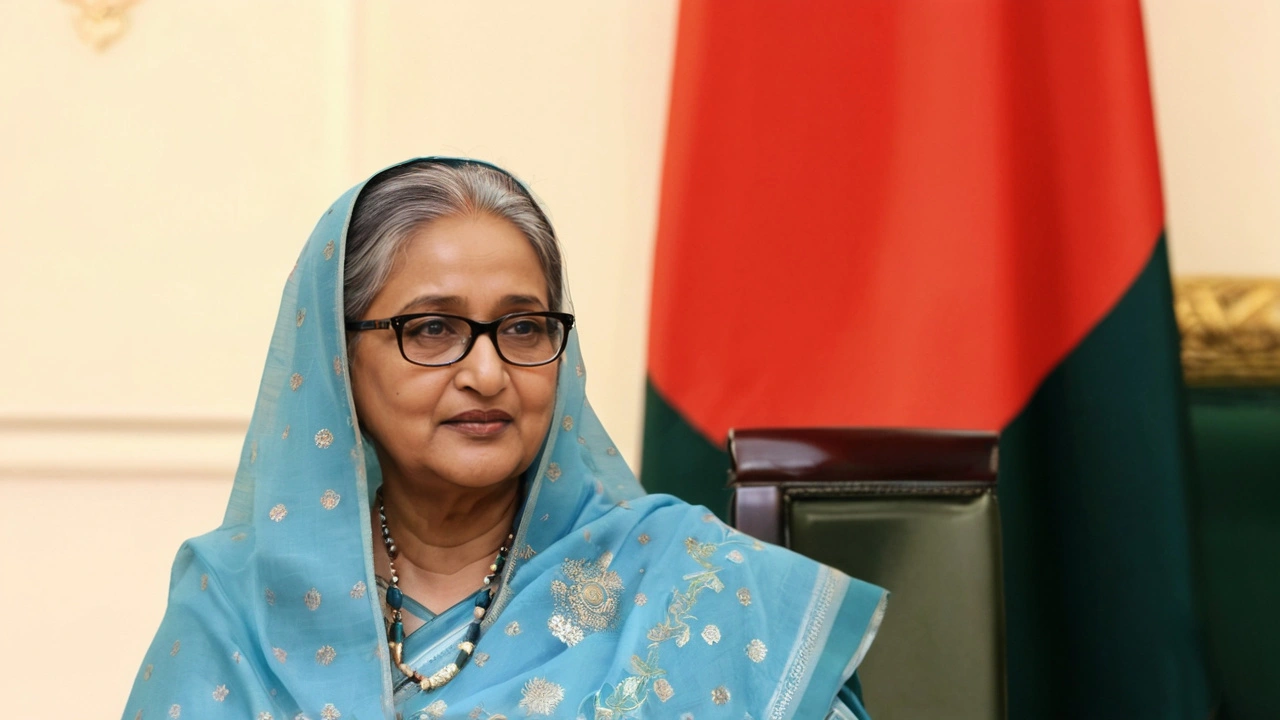Protests Reach Boiling Point as Bangladeshi PM Flees Palace
The political climate in Bangladesh has reached unprecedented levels of unrest as Prime Minister Sheikh Hasina fled her palace on Monday while cheering protesters stormed the premises. This event marks the culmination of more than a month of intensifying anti-government protests rooted in the reintroduction of a quota scheme that reserved more than half of all government jobs for select groups. Despite being partially scaled back by Bangladesh's highest court, the protests have escalated, culminating in lethal violence and widespread calls for Hasina's resignation.
Roots of the Uprising
What began as a protest against a controversial policy quickly morphed into a nationwide movement questioning the legitimacy of Sheikh Hasina's government. The quota scheme seemed the final straw for many who already harbored deep-seated frustrations over a range of issues, including corruption and lack of transparency. As mountains of discontent grew, so did the number and intensity of protests. Lethal clashes with security forces have become a gruesome hallmark of the unrest.
The policy in question sought to reserve more than half of all government job openings for various social groups. Despite its partial rollback by the country's top court, the ruling did little to mollify public outrage. Protesters felt emboldened, feeding on the raw anger coursing through a populous grieved with long-term grievances.
Unrelenting Violence
The protests reached a deadly peak on Sunday, with at least 94 people, including 14 police officers, losing their lives. According to an AFP tally, the death toll since the protests began in early July has hit at least 300. The bloodshed has featured harrowing confrontations involving sticks, knives, and even gunfire from security forces, pointing to the increasingly volatile and desperate nature of these demonstrations.
Spectators recount chaotic scenes where once peaceful demonstrations have turned into bloody battlegrounds. The violence is symptomatic of deeper societal rifts and layers of dissatisfaction that go beyond government job quotas. The scale of suffering and casualties has also fuelled further public outrage, creating a vicious cycle that propels the unrest.
Government Reaction and Political Dynamics
Amidst the chaos, Sheikh Hasina's efforts to maintain her grip on power have faced severe scrutiny. Her decision to leave the palace for a 'safer location,' as disclosed by sources close to her administration, speaks volumes about the precariousness of her position. At 76 years old, Hasina has led Bangladesh since 2009, but this current crisis could signify the most significant challenge to her rule yet.
Sajeeb Joy, Hasina's son, has made public calls for security forces to fend off any attempts to undermine her administration's 15-year rule. He also urged security agencies to uphold the constitution and stave off what he perceives as an unconstitutional takeover attempt. This standoff sets the stage for an escalated confrontation between the government and the protesters.
Role of the Military
Adding yet another layer to this multifaceted crisis is the role of Bangladesh's military. Historically, the military has played a significant part during periods of political instability in the country. In January 2007, the military declared an emergency and established a military-backed caretaker government that reigned for two years. Many now speculate whether history will repeat itself as Army Chief Waker-Uz-Zaman is set to address the nation on Monday afternoon.
Civilians are keenly aware of the military's potential to tip the balance in favor of one side or the other. Interestingly, this awareness seems to have galvanized broader support for the protests, which have managed to attract a spectrum of participants from different socioeconomic backgrounds, including film stars, musicians, and public figures. This broader coalition suggests that the call for change transcends traditional political divides, making the situation exceedingly complex.
International and Domestic Reactions
The international community closely monitors unfolding events in Bangladesh. Rights groups have criticized Hasina's administration for misusing state institutions to cement its control, often through extrajudicial means to eliminate dissenting voices. These accusations have now gained more traction as the protests intensify. Foreign governments express increasing concern, urging restraint on all sides to prevent further escalation of violence.
Domestically, the unrest disrupts daily life and damages the nation’s socio-economic fabric. Business activities have taken a significant hit, contributing to economic instability. Schools and colleges have closed, and people are stockpiling essential goods in anticipation of prolonged unrest. The situation has also affected the country's healthcare services, as hospitals become overwhelmed with the injured from protest-related violence.
Future Ahead
As Bangladesh stands on the precipice of potential major political change, questions loom about what the future holds. Will Sheikh Hasina be able to weather this storm and retain her leadership, or is the country on the brink of a significant political overhaul? These questions resonate deeply with citizens and international observers alike. The army's pending involvement and the persistence of widespread protests signify that this situation remains fluid and extremely volatile.
One thing is certain—the events of the past month have profoundly altered the political landscape of Bangladesh. The protests have peeled back layers of dissatisfaction that may have otherwise remained unseen or ignored. As the nation grapples with its political future, it does so with the knowledge that its citizens are more galvanized and united than they have been in years. Whatever happens next will not only shape the leadership but also fundamentally alter the nation's character and its place on the global stage.


Amanda Friar
Oh, fantastic – the prime minister decides that palace life is too boring and makes a dramatic exit. It’s almost like a reality‑TV plot twist, except the stakes are real lives and a nation’s stability. One has to admire the sheer confidence to flee when the streets are literally on fire. Sure, it sends a clear signal that the government is terrified, but it also rallies the crowds who now see the leader as a scared cat. If only the protests could be solved with a polite RSVP, we'd all be done with this mess.